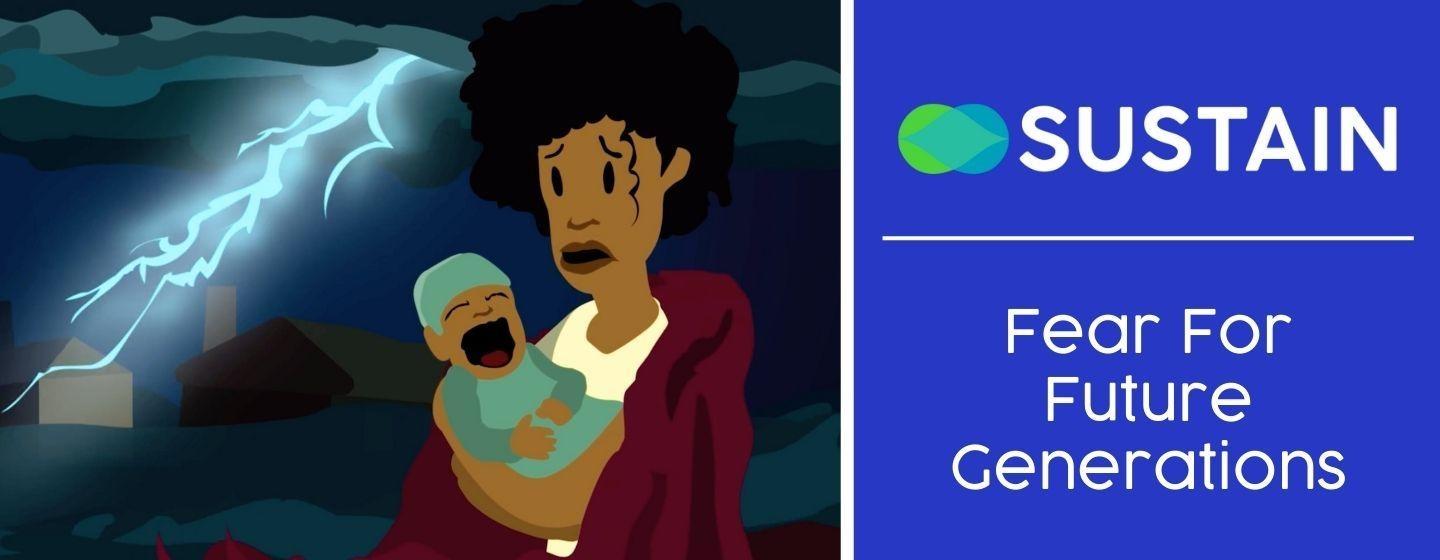Fear For Future Generations



Extreme heat, heavy downpours, flooding, powerful hurricanes – these threats aren’t new to West Central Florida. But climate change is exacerbating the frequency and severity of these phenomena in ways that are already affecting our daily lives.
In 2023, Earth’s hottest year on record, Tampa experienced 25 days with temperatures of 95 degrees or warmer, a new high. Hurricane Idalia accelerated 46 miles per hour in 24 hours, an example of climate change’s rapid intensification of storms. Sarasota endured 13 record-high overnight temperatures, the most of any Florida city analyzed. Unusually warm nights prevent our bodies from cooling off, potentially leading to heat-related illnesses and strokes.
Scientists expect impacts like these to intensify over the next few decades.
As we take cover from sweltering heat and perilous storms, wade through flooded streets on sunny days and watch places we love change, it’s normal to experience feelings of anxiety, loss and even hopelessness.
It’s also normal to fear for the wellbeing of children, young people and the generations to come, who will likely experience even more severe climate impacts.
We want future generations to enjoy the same Florida nature experiences that we did, rather than contend with a damaged and dangerous environment. There are even ethical debates about whether we should have children in the face of climate change.
If you have these fears, first pause to acknowledge your feelings. Anxiety is our bodies’ natural response to a threat. It can be a constructive emotion, nudging us into problem-solving mode.
Gen Z – people born after 1996 – are highly aware of climate change and are the generation most likely to take action to address it. They’re also experiencing intense climate anxiety.
In the largest-ever survey about climate anxiety, more than half of 16 to 25-year-olds from 10 nations said they feel the planet is doomed. Nearly 40% of respondents also said fears about the future have made them reluctant to have children of their own.
Feelings of grief aren’t bad, says Britt Wray, one of the researchers who conducted the survey. “Grief comes from a deep state of caring,” Wray said. “These emotions are a sign of our connection to things that are beyond ourselves — to other species, wild places, generations yet unborn, and to the vulnerable communities that will be impacted the worst.”
Climate scientist Katherine Hayhoe says the most important thing we can do to fight climate change is talk about it. One of the ways you can help children and young people is to talk to them about how they feel about the future of Florida and our planet. Listen to what they say, and affirm the validity of their feelings.
Shrinking your carbon footprint is another way you can help curb climate change’s impacts on future generations. Weatherizing your home, choosing energy-efficient appliances, driving and flying less, reducing food waste and adding more plants to your diet are all ways you can cut back on the heat-trapping greenhouse gases that warm Earth’s atmosphere.
Introduce children and youth to the Florida wildlife and natural places your love. In “A Field Guide to Climate Anxiety,” Sarah Jaquette Ray advises young people to make time to live in and savor the world they want to save. Two hours a week in the outdoors can also help boost physical health and mental wellbeing.
Helping protect and restore Florida’s natural carbon-storing powerhouses is another way of fighting future climate change. These powerhouses include forests, wetlands, mangroves and seagrass.
The blog above is part of a digital-only, four-part series called "Experiencing Eco-Anxiety". Each blog supports a video in which a Floridian shares their personal experience with eco-anxiety.
As a child, Jo's eco-anxiety centered on animals. As she grew older, her concern shifted to people — especially the unequal burdens some communities bear. Now, as a parent, her thoughts are with her children. What kind of world will they inherit? Jo is a teacher who embraces the idea of being actively hopeful—believing that we can take meaningful action on climate change.